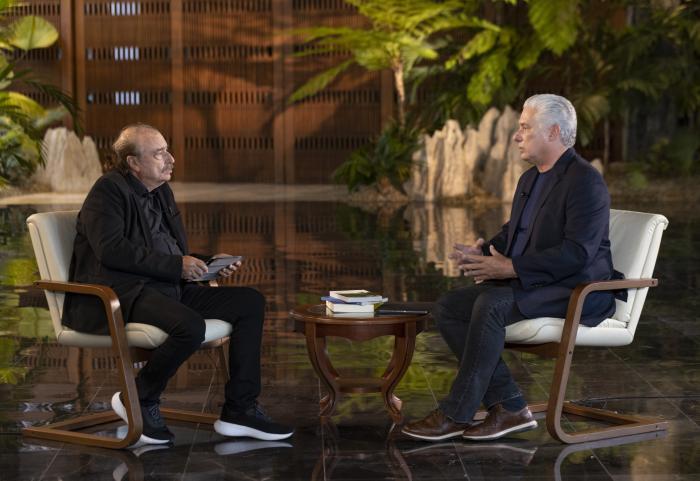In a comprehensive interview with Spanish journalist Ignacio Ramonet, Cuban President Miguel Díaz-Canel addressed the pressing economic challenges facing Cuba, the impact of the U.S. blockade, and the nation’s efforts toward regional integration. The discussion, held at the Palace of the Revolution on May 11, 2024, delved into three key areas: domestic policy, the economy, and international relations.
**Domestic Policy and Economic Hardships**
Díaz-Canel acknowledged the severe difficulties faced by Cuban families, including food shortages, inflation, and public service deficits. He attributed these issues primarily to the U.S. economic blockade, which has been in place for over six decades. The President emphasized that the blockade has intensified under recent U.S. administrations, particularly with the inclusion of Cuba in the U.S. list of state sponsors of terrorism. This has further restricted Cuba’s access to international financial systems and foreign investment.
The President highlighted Cuba’s resilience and creative resistance in the face of these challenges. Despite the blockade, Cuba has managed to maintain social programs and economic activity, albeit at a reduced capacity. Díaz-Canel pointed to the COVID-19 pandemic as a critical moment when Cuba prioritized saving lives, diverting limited resources to healthcare and vaccine development.
**Economic Measures and Future Plans**
Díaz-Canel outlined Cuba’s Macroeconomic Stabilization Program, aimed at addressing inflation, exchange rate issues, and fiscal imbalances. The program, which extends to 2030, focuses on stimulating domestic production, particularly in agriculture, to achieve food sovereignty. The President also discussed the role of micro, small, and medium-sized enterprises (MSMEs) in diversifying the economy and fostering innovation.
**International Relations and Regional Integration**
On the international front, Díaz-Canel criticized the U.S. government for maintaining the blockade despite widespread global condemnation. He expressed Cuba’s willingness to engage in dialogue with the U.S. on equal terms but stressed that the blockade must be lifted unilaterally. The President also highlighted Cuba’s participation in regional alliances, such as the Eurasian Economic Union and its aspirations to join the BRICS group, as part of its strategy to counter U.S. hegemony and foster South-South cooperation.
**Regional Challenges and Solidarity**
Díaz-Canel addressed the political and economic crises in Latin America and the Caribbean, emphasizing Cuba’s commitment to regional solidarity and integration. He condemned U.S. interference in the region and reaffirmed Cuba’s support for progressive governments and movements. The President also highlighted Cuba’s contributions to regional health and education, including the deployment of medical brigades to Haiti and other countries.
In conclusion, Díaz-Canel expressed optimism about Cuba’s future, emphasizing the nation’s resilience, creativity, and commitment to social justice. He called for greater international cooperation and solidarity to overcome the challenges posed by the U.S. blockade and to build a more equitable world.
